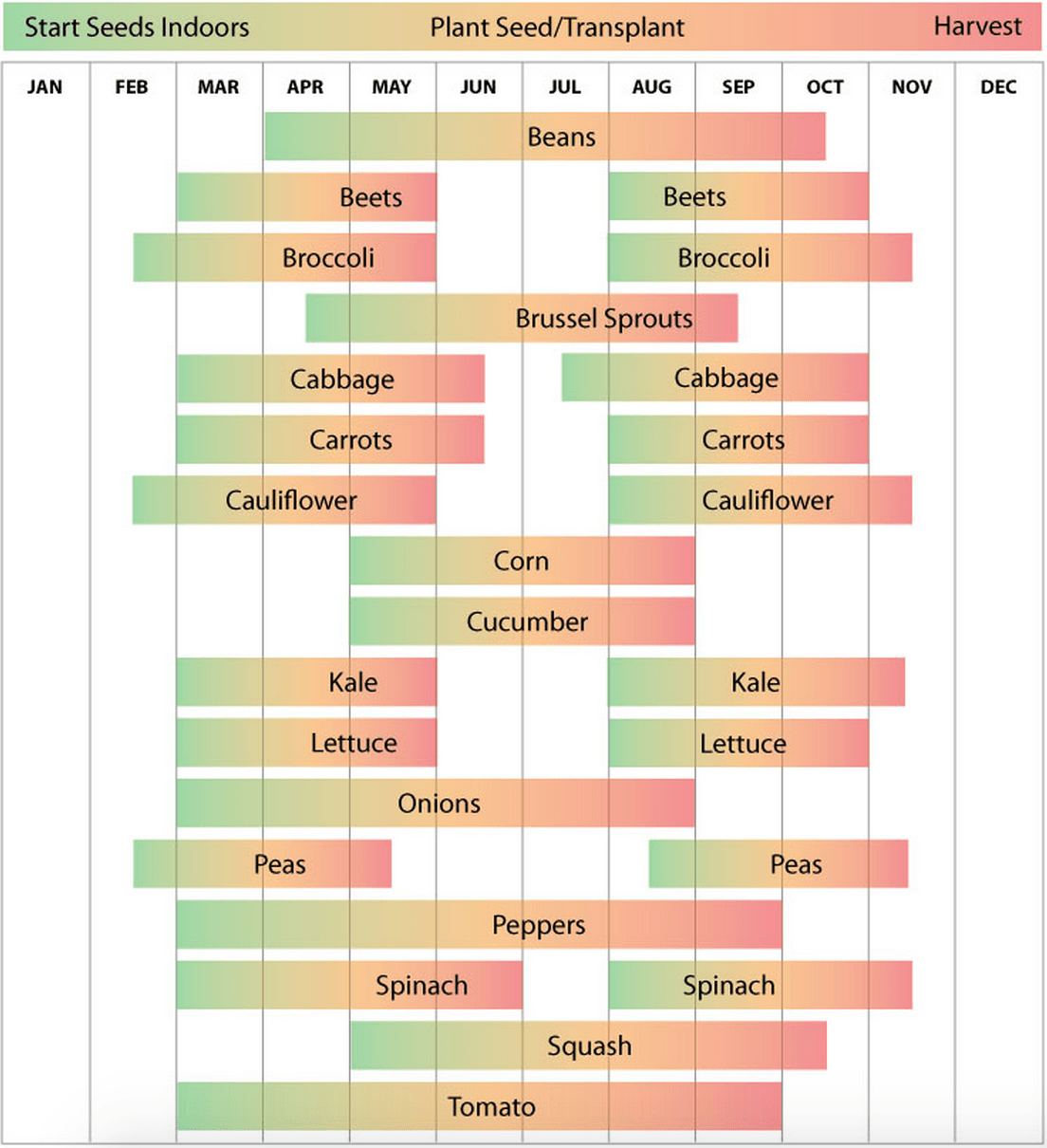Hacking the Ohio Fall Garden: Your Guide to a Bountiful Harvest
Crisp air, vibrant foliage, and the promise of a bountiful harvest – autumn in Ohio presents a unique opportunity for gardeners. Don't let the shortening days fool you; your garden can still thrive. This guide explores the exciting possibilities of fall gardening in Ohio, providing insights into selecting the perfect plants and maximizing your yield, even as the temperatures drop.
Imagine harvesting fresh greens well into November, or enjoying a vibrant display of fall blooms. This vision can become a reality with a well-planned fall garden. From robust root vegetables to cold-hardy greens, Ohio's climate allows for a surprising variety of autumn crops. This article will unpack the essential knowledge for cultivating a successful fall garden in the Buckeye State.
Fall planting in Ohio has a rich history, tied to the agricultural traditions of the region. Early settlers recognized the value of extending the growing season, utilizing the cool temperatures and ample rainfall for specific crops. This knowledge has been passed down through generations, adapting to modern techniques and incorporating a wider range of plant varieties.
The importance of fall gardening extends beyond simply extending the harvest season. It provides an opportunity to maximize garden space, cultivate crops better suited to cooler temperatures, and enjoy the unique flavors and textures of fall produce. It also offers a sustainable approach to gardening, making the most of the natural rhythm of the seasons.
However, fall gardening in Ohio isn't without its challenges. Understanding the specific needs of fall crops, managing pests and diseases, and preparing for the first frost are crucial elements of success. This guide addresses these challenges and offers practical solutions for overcoming them, ensuring a thriving and productive fall garden.
Let’s start with the basics. When considering what vegetables to plant in an Ohio fall garden, think about those that thrive in cooler temperatures. Leafy greens like spinach, kale, and lettuce are excellent choices. Root vegetables such as radishes, turnips, and carrots also flourish in the fall. Cruciferous vegetables like broccoli, cauliflower, and Brussels sprouts enjoy the cooler weather.
Beyond vegetables, consider adding color and texture with fall flowers. Pansies, mums, and asters are popular choices, providing vibrant hues even as the leaves change color. These flowers are relatively low-maintenance and can withstand light frosts.
One benefit of fall planting is the extended growing season. Many crops, like spinach and kale, can be harvested well into late fall and even early winter, providing fresh produce long after the summer garden has faded.
Another advantage is the improved flavor of some crops. The cooler temperatures can enhance the sweetness of root vegetables like carrots and parsnips. The slightly frosty nights can also intensify the flavor of leafy greens.
Finally, fall gardening can contribute to soil health. Cover crops planted in the fall can help prevent erosion, suppress weeds, and improve soil structure. These benefits carry over into the spring, creating a healthier environment for your next garden.
A simple action plan involves selecting your desired crops, preparing the soil by adding compost or other organic matter, sowing seeds or transplanting seedlings, and providing consistent watering. Successful fall gardens often incorporate row covers or cold frames to protect plants from frost and extend the growing season further.
Advantages and Disadvantages of Fall Gardening in Ohio
| Advantages | Disadvantages |
|---|---|
| Extended Growing Season | Risk of Frost Damage |
| Improved Flavor of Some Crops | Shorter Daylight Hours |
| Reduced Pest Pressure | Slower Growth Rates |
Best practices for Ohio fall planting include: starting seeds indoors for a head start, amending soil with compost, using row covers to protect from frost, ensuring adequate watering, and practicing crop rotation.
Examples of successful fall crops in Ohio include spinach, kale, lettuce, carrots, radishes, turnips, broccoli, cauliflower, Brussels sprouts, pansies, mums, and asters.
Challenges might include unexpected early frosts, pest infestations, or slow growth due to cooler temperatures. Solutions can involve using row covers, implementing pest control strategies, and selecting cold-hardy varieties.
FAQ: What are the best vegetables for fall planting in Ohio? When should I start my fall garden? How do I protect my plants from frost? What are good companion plants for fall crops? How do I manage pests in my fall garden? What are the best fall flowers for Ohio? When should I stop watering my fall garden? How do I prepare my garden for winter?
Tips and tricks include starting seeds indoors, using raised beds for improved drainage, and planting in succession to ensure a continuous harvest.
Embracing the opportunities of fall gardening in Ohio allows you to extend the joy of growing your own food and enjoying vibrant blooms well into the autumn season. By understanding the nuances of fall planting, from selecting the right crops to implementing best practices, you can maximize your harvest and enjoy the unique flavors and textures of autumn produce. The benefits of a thriving fall garden extend beyond the dinner table, contributing to soil health and providing a sustainable approach to gardening. So, grab your gardening tools, embrace the crisp air, and start planning your Ohio fall garden today. You'll be surprised by the bounty that awaits you, even as winter approaches. Don't let the changing seasons deter you; let them inspire you to cultivate a vibrant and productive fall garden, a testament to the resilience and beauty of nature in the Buckeye State.
Notebook cover designs for calligraphy
Decoding oregons grow zone map your guide to successful gardening
Unlocking kawaii your guide to drawing adorable characters














